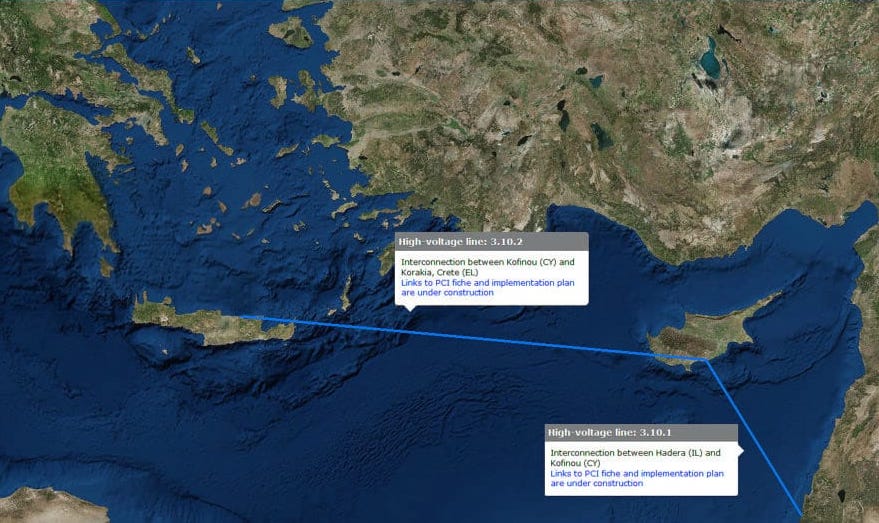The way the Great Sea Interconnector is being promoted “bears serious risks and many problems,” associations affiliated with the Cyprus Employers & Industrialists Federation (Oev) related to energy matters have warned.
They call on the government and the involved authorities to “seriously examine the consequences before the proceed” and make sure the terms safeguard the interests of the citizens and the economic viability of the country.
In a press release, the associations point out that they disagree with the position that the cable should go ahead at any cost.
The associations signing the press release are the Electricity Market Association, the Pancyprian Association for Energy Saving, the Cyprus Association of Renewable Energy Enterprises, the Wind Energy Alliance and the Cyprus Hydrogen Association.
Outlining the risks, the associations say that the risk and burden of consequences from changes in the implementation of the project must be undertaken by the investor and not the consumers.
The final cost of the project must also be finalised and anything in excess should be paid by the investor, while sanctions should be imposed if the tenderer does not deliver by the 2030, which is the date of completion according to the Independent Power Transmission Operator, they say.
The associations find any standing fee to be paid by the consumers before the commercial operation of the project to be “unreasonable and irrational”.
“Before the decision is taken for the government to participate with a capital of €100 million, the uncertainties of the project must be seriously assessed in relation to the total cost, the timeline for completion, the benefit for the Cypriot consumer and the dangers of burdening public debt in the case of failure or delays,” the associations point out.
They add that while the government is waiting for the results of the cost-benefit evaluation, it would be useful for it to examine if the funding solution was a preferable option to participating as an investor, which would allow it to participate without risk.
The associations consider the distribution of cost – 63 per cent for Cyprus and 37 per cent for Greece – to be “unfair and unreasonable”, as the project would benefit the Greek producers much more, as they will be exporting their excess energy to Cyprus.
Furthermore, “the implementation and uncontrolled operation of the Great Sea Interconnector holds serious dangers for Cyprus’ self-sufficiency in energy and safety and also puts the viability of many investments made so far in Cyprus at risk,” reducing them to “backup operations with an undetermined financial impact”.
The associations point out that it is important that the state sets the boundaries of importing energy.







Click here to change your cookie preferences